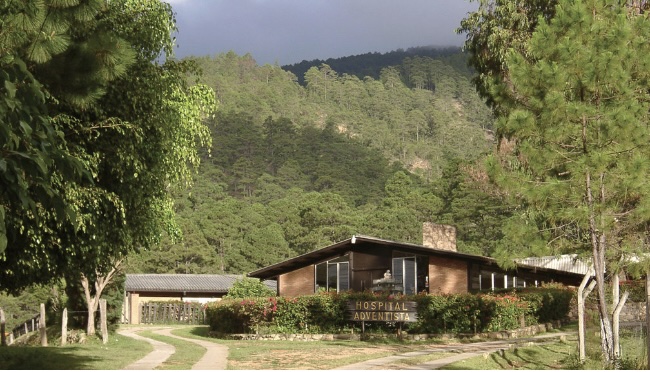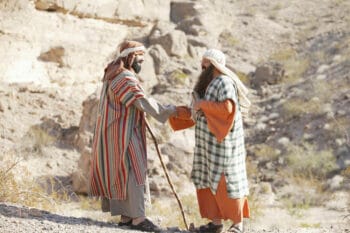Four young adults. One God. Countless lessons in grace. In this inspiring group interview, discover how Maddalena, Sarah, Jeffrey, and Keith found healing, identity, and purpose through surrender to God’s call to true education. Source: https://www.youtube.com/watch?v=YUPWJI1p-1E
News from the Philippines, Puerto Rico, Andrews University & Solomon Islands

11 December 2025 | News from the Philippines Hundreds gathered at the Life Hope Center (LHC) in the Philippines and thousands more through Hope Channel as the “Finding Hope” evangelistic series began its 10-day run. This is a significant milestone in the Southern Asia-Pacific Division’s (SSD) Net Harvest. This initiative concludes the Harvest 2025 campaign […] Source: https://atoday.org/news-from-the-philippines-puerto-rico-andrews-university-solomon-islands/
New Travel Bans Lead to Critical Loss for Adventist Clinic in Chad

10 December 2025 | The Adventist Healthcare system is built on the mission of “Extending the healing ministry of Christ.” What do hospitals do when government regulations prevent life-saving care? The current United States administration issued a travel ban on 12 countries and travel restrictions on an additional seven. One of the countries affected by […] Source: https://atoday.org/new-travel-bans-lead-to-critical-loss-for-adventist-clinic-in-chad/
Jesus Over Everything Else
This song is a bold declaration: Jesus above all. Share this video with someone who needs to be reminded where true treasure lies. Source: https://www.youtube.com/shorts/J7emsModgWQ
Thursday: Conflict Resolution
Daily Lesson for Thursday 11th of December 2025
Read Joshua 22:30-34. How does this entire incident give us some insights into conflict resolution and ways of ensuring the unity of the church? (Compare with Psalms 133:1-3; John 17:20-23; 1 Peter 3:8-9.)
The story of Joshua 22:1-34 has several principles of communication that can apply to everyday human relationships in the family, church, and community.
-
When things go wrong, or seem to go wrong, the best thing to do is to communicate instead of suppressing our observations until they explode. It is good for God’s people not to remain indifferent when problems seem to arise. Of course, had the Transjordanian tribes communicated their intent of building an altar, the whole issue could have been avoided.
-
Even if one is convinced about their judgment, do not jump to hasty conclusions. The West Jordan tribes were quick to believe the rumor that reached their ears and to draw the false conclusion that the East Jordan tribes already had apostatized.
-
Talk about the real or perceived problems before you act on your conclusions.
-
Be willing to make a sacrifice in order to achieve unity. The West Jordan tribes were willing to give up part of their allotment to accommodate the other tribes, if being on the other side of the Jordan was the cause of their assumed apostasy.
-
When accused, falsely or rightly, give a gentle answer that turns away wrath. To answer an accusation with a counter-accusation will never lead to peace. Try to understand before attempting to be understood.
-
Rejoice and bless God when peace is reestablished. It is wonderful to see that the main Israelite congregation experienced genuine joy when they learned about the true motivation of the two-and-a-half tribes. They were not so proud of their judgment that they could not admit they were wrong in making it.
Had the East Jordan tribes apostatized, the people of Israel would have applied the requirements of the covenant. Unity can never be an argument to water down truth or give up on biblical principles. However, church discipline should always be the last (and not the first) resort, after attempts at reconciliation and pastoral assistance based on God’s Word have failed. How different would our churches look if these simple principles were consistently applied!
 (0)
(0)- « Previous Page
- 1
- …
- 200
- 201
- 202
- 203
- 204
- …
- 8287
- Next Page »

